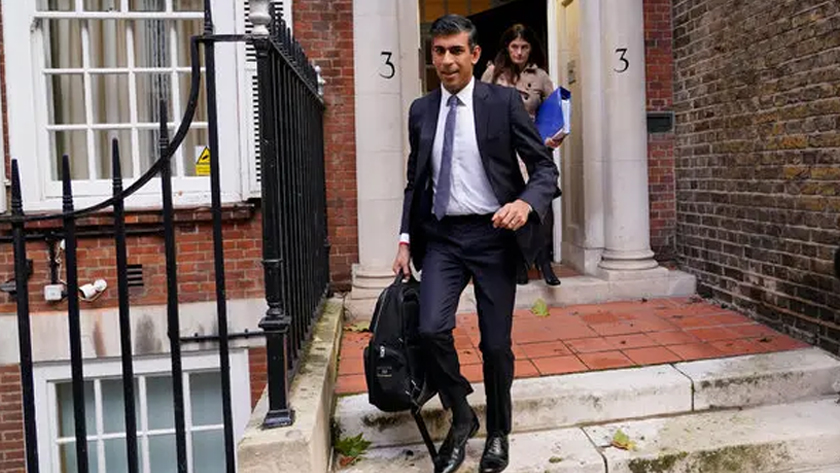Iran Press/ Europe: Sunak, one of the wealthiest politicians in Westminster and set to be Britain’s first leader of colour and the nation's third leader just this year. He will be asked to form a government by King Charles III, replacing Liz Truss, the outgoing leader who only lasted 44 days in the job before she resigned.
His only rival, Penny Mordaunt, conceded and withdrew after failing to reach the nomination threshold of 100 Conservative lawmakers needed to stay in the race.
“I can confirm that we have received one valid nomination, and Rishi Sunak is therefore elected as leader of the Conservative Party,” said party official Graham Brady.
Sunak had been the strong favorite as the governing Conservatives sought stability at a time of immense economic challenges and after months of chaos that consumed the past two leaders.

Sunak lost out to Truss in the last Conservative election, but his party now appears eager for a safe pair of hands to tackle soaring energy and food prices and a looming recession. The politician steered the economy through the coronavirus pandemic, winning praise for his financial support for laid-off workers and shuttered businesses.
He promised “integrity, professionalism and accountability” if he formed a government — a veiled criticism of the scandal-tarred Boris Johnson and the problem-plagued Liz Truss.
Related News:
Boris Johnson considers running again to be British PM
Sunak will become the prime minister in a handover of power from Truss later Monday or on Tuesday.
Sunak's victory is historic: He is the first British prime minister of South Asian heritage, the first Hindu to hold the post and the youngest for 200 years.
His challenge is enormous as he tries to unite a demoralized and divided party that trails far behind the opposition in opinion polls, and seeks to shore up an economy reeling after Truss' brief, disastrous experiment in libertarian economics.
Her proposal for aggressive tax cuts that would be paid for through government borrowing pummeled the value of the pound drove up the cost of government borrowing and home mortgages, and forced emergency Bank of England intervention. Truss executed a series of U-turns and replaced her Treasury chief but faced rebellion from lawmakers in her party that obliterated her authority.
In the lighting-quick contest to replace her, Sunak’s position strengthened after former leader Boris Johnson dramatically quit the race on Sunday night, ending a short-lived, high-profile attempt to return to the prime minister’s job he was ousted from little more than three months ago amid ethics scandals.
Johnson spent the weekend trying to gain support from fellow Conservative lawmakers after flying back from a Caribbean vacation. Late Sunday he said he had amassed the backing of 102 colleagues. But he was far behind Sunak in support, and said he had concluded that “you can’t govern effectively unless you have a united party in Parliament.”
Truss quit Thursday after a turbulent 44 days in office, conceding that she could not deliver on her botched tax-cutting economic package, which she was forced to abandon after it sparked fury within her party and weeks of turmoil in financial markets.
The Conservative Party turmoil is fueling demands for a national election. Under Britain’s parliamentary system, there does not need to be one until the end of 2024, though the government has the power to call one sooner.
Currently that looks unlikely. Opinion polls say an election would spell disaster for the Conservatives, with the left-of-center Labour Party winning a large majority.
224
Read More:
UK to decide New PM in coming hours after Johnson withdraws
Rishi Sunak announces bid to become UK premiere
Maryam Abolbagha

